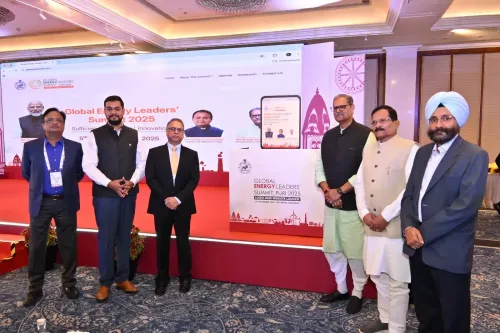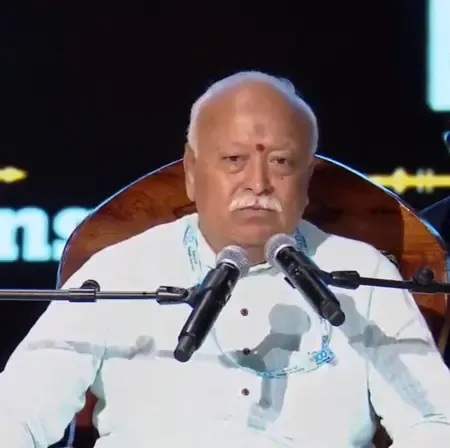How is Laos Enhancing Agricultural Production to Improve Competitiveness?

Synopsis
Key Takeaways
- Proactive measures to boost agricultural production in Laos.
- Focus on modern technology and sustainable practices.
- Plans to improve access to capital and essential resources.
- Emphasis on youth involvement and education in agriculture.
- Strategies to address challenges in infrastructure and supply chains.
Vientiane, Nov 13 (NationPress) The Ministry of Agriculture and Forestry in Laos has set forth strategies to enhance agricultural production and processing, with the goal of boosting competitiveness and increasing the value of Lao products.
During the 10th ordinary session of the Lao National Assembly's ninth legislature, Linkham Douangsavanh, the Minister of Agriculture and Forestry, reported consistent growth in the agricultural and forestry sectors in recent years, driven by several large-scale projects that have reduced imports and improved exports, according to Xinhua News Agency.
Between 2021 and 2025, the average annual export value of agricultural and forestry products stood at 1.57 billion US dollars. In the first ten months of 2025, exports reached 1.54 billion dollars, exceeding the Lao National Assembly's target of 1.5 billion dollars for the year.
Despite these advancements, Linkham recognized several challenges such as limited mechanization, low adoption of modern technology, insufficient irrigation, high production costs, weak supply chains, and underdeveloped infrastructure.
To address these obstacles, the ministry has proposed various key strategies, including the development of policies aimed at reducing production costs, promoting the adoption of cutting-edge technology and innovation, and executing detailed national strategies for crops, livestock, and aquaculture.
The ministry also intends to enhance access to capital, market intelligence, and critical inputs like seeds, fertilizers, veterinary medicines, and machinery. Additionally, it aims to foster modern, sustainable farming practices while encouraging investments in logistics, processing plants, storage facilities, and laboratories for pest and residue analysis.
Earlier in September, the inaugural Lao National Youth Forum, themed 'Youth-Led Climate Smart Agriculture and Climate-Resilient Food Systems', took place in Vientiane, aimed at empowering youth to spearhead the transition of food systems towards sustainability.
As reported by the Vientiane Mai newspaper, the forum featured participation from Xaynakhone Inthavong, the Lao Deputy Minister of Agriculture and Environment, Bakhodir Burkhanov, the United Nations Resident Coordinator in Laos, Kyung-Mee Kim, the FAO Representative to Laos, and other key stakeholders.
In his address, Xaynakhone emphasized that Laos' population is rapidly growing and is projected to reach 9 million by 2035. This growth will not only stimulate economic expansion but also escalate the demand for food, water, and land. The conversion of agricultural land into urban areas adds pressure on resources and food security, compounded by the challenges of climate change.
To tackle these issues, the Lao Ministry of Agriculture and Environment is prioritizing the transformation of food systems. Key initiatives involve promoting young farmers through training in sustainable agriculture, business management, and marketing, alongside supporting climate resilience research in collaboration with universities.
The ministry also advocates for youth participation in community development, provides scholarships and vocational training, and organizes regular courses in agricultural technology, thereby cultivating a new generation of leaders in sustainable agriculture.









